Denied a role at the Battle of the Little Big Horn, this Gatling gun crew gives Custerphiles another view of the ill-fated fight.

On May 17, 1876, Lt. Col. George Armstrong Custer and the 7th U.S. Cavalry marched from Fort Abraham Lincoln, Dakota Territory, to destiny at Little Big Horn. Not so well-known is the fact that a battery of three .50 caliber Gatling guns accompanied the expedition, mobilized to subjugate the non-reservation, “hostile” Lakota Sioux bands led by Sitting Bull and Crazy Horse in Montana Territory. Second Lt. William H. Low and a detachment of the 20th Infantry had been assigned to the fort to organize this “artillery” component of Brig. Gen. Alfred H. Terry’s “Dakota Column.”
Low’s unit, however, would be denied a role at the Battle of the Little Big Horn, fought that June, when his guns were assigned to Col. John Gibbon’s less mobile “Montana Column” because of a legitimate concern that the Gatlings would impede Custer’s “pursuit of the Indians,” as Custer’s orders of June 22 stated. During a previous cavalry reconnaissance “over very rough ground,” one of Low’s guns had overturned, injuring three men, and was temporarily abandoned, several participants recalled. The four unfit condemned cavalry horses that pulled each gun further justified concerns about the mobility of this precursor to the modern machine gun. Informed that his battery would not march with the 7th Cavalry, Low “wept, almost cried,” remembered Winfield S. Edgerly, a second lieutenant with the 7th Cavalry.
Esta historia es de la edición June 2017 de True West.
Comience su prueba gratuita de Magzter GOLD de 7 días para acceder a miles de historias premium seleccionadas y a más de 9,000 revistas y periódicos.
Ya eres suscriptor ? Conectar
Esta historia es de la edición June 2017 de True West.
Comience su prueba gratuita de Magzter GOLD de 7 días para acceder a miles de historias premium seleccionadas y a más de 9,000 revistas y periódicos.
Ya eres suscriptor? Conectar
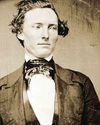
FIREARMS COLT WALKER 47
THE LEGENDARY HANDGUN THAT REALLY WON THE WEST
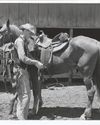
HERITAGE TRAVE
THE AMERICAN WEST IN ALL ITS GLORY OUR ANNUAL FAVORITES LIST CELEBRATES DESTINATIONS ACROSS THE WESTERN UNITED STATES.
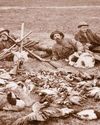
Wild Turkey, and Not the Drinkin' Kind
The actual bird was a favorite of pioneers.
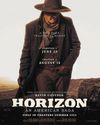
THE PASSION PROJECTS OF THE MODERN WESTERN
A YEAR OF UNDERRATED EXCELLENCE
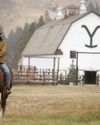
WESTERN BOOKS THEN AND NOW
THE STATE OF WESTERN HISTORY AND FICTION PUBLISHING IN 2024 IS ONE OF GRIT AND DETERMINATION.
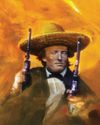
SAMUEL WALKER VALIANT WARRIOR
While a prisoner at the castle of Perote, Walker was put to work raising a flagpole. At the bottom of the hole, Walker placed a Yankee dime, vowing to someday come back and retrieve it, at the same time exacting revenge on his Mexican captors. In the summer of 1847, when Walker's mounted riflemen returned and routed Santa Anna's guerillas, the young captain kept his promise and got his dime back.
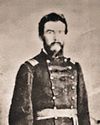
THE BATTLE OF CENTRALIA
ON September 27, 1864, Bloody Bill Anderson and about 80 men took over the small railroad village of Centralia, looting stores and discovering a barrel of whiskey that they hauled out into the street. Wild enough when sober, they soon were roaring drunk.
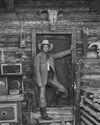
THE MAN WHO SHOOTS THE WEST
Jay Dusard is a living American photographer who has made Arizona his home for over 60 years, seeing it first in 1960 on a visit, moving here for good in 1963.
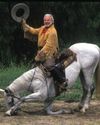
A TRUE WESTERNER INDEED PHIL SPANGENBERGER 1940-2024
Spangenberger had Nevada trained to bow by the legendary horse trainer, Glenn Randall, who trained Roy Rogers' Trigger, Gene Autry's Champion, Rex Allen's Koko and the Ben Hur chariot horses, among other great equines.

Where Did the Loot Go? - This is one of those find the money stories. And it's one that has attracted treasure hunters for more than 150 years.
Whatever happened to the $97,000 from the Reno Gang's last heist? Up to a dozen members of the Reno Gang stopped a Jeffersonville, Madison and Indianapolis train at a watering station in southern Indiana. The outlaws had prior intelligence about its main load: express car safes held about $97,000 in government bonds and notes. In the process of the job, one of the crew was killed and two others hurt. The gang made a clean getaway with the loot.